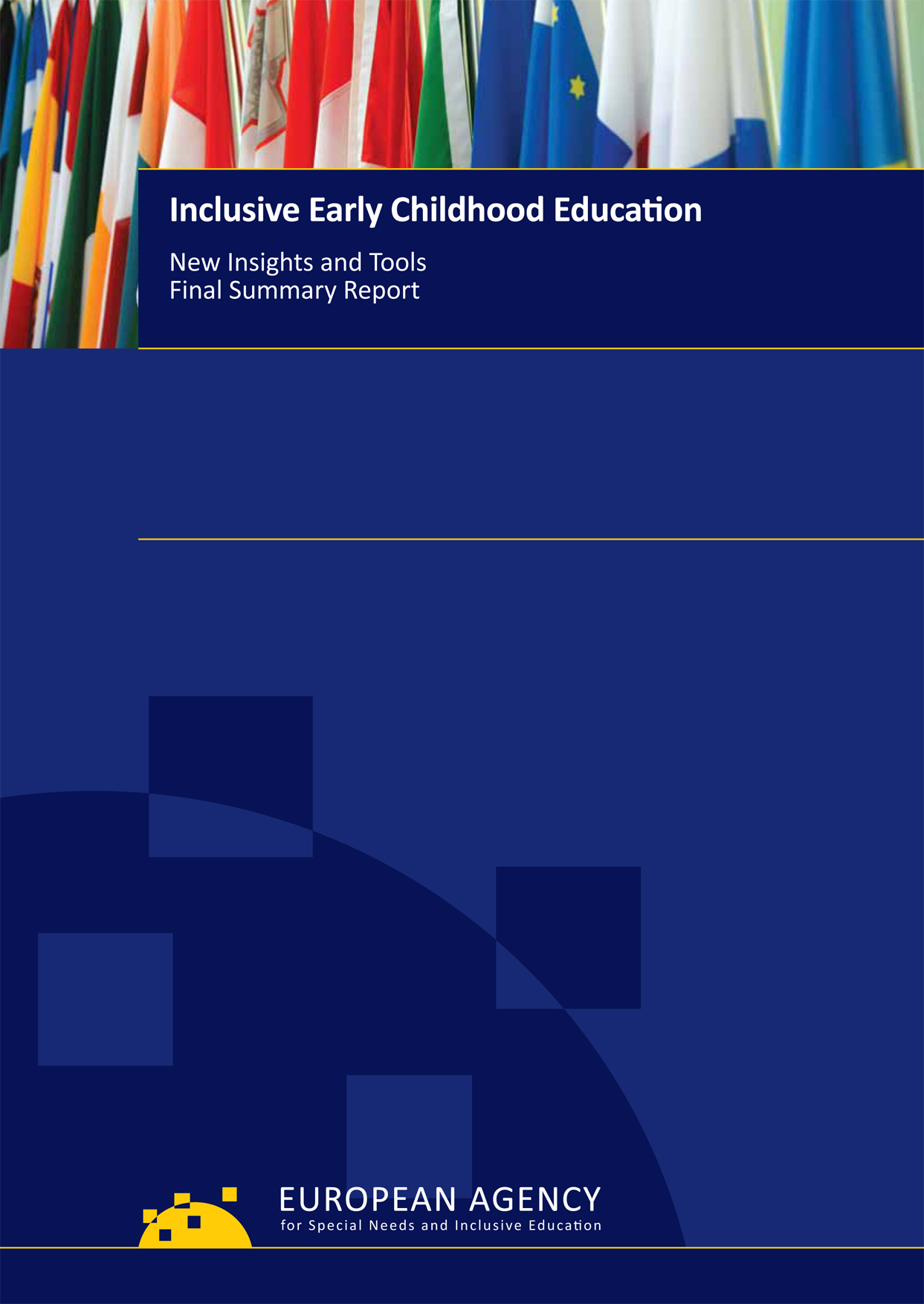International organisations and the European Union (EU) regard high-quality Early Childhood Education (ECE) as an essential foundation for lifelong learning. Participation in high-quality pre-primary education has long-lasting positive effects on children’s development and the benefits are greater for children from a disadvantaged background. This literature review is part of the Agency's Inclusive Early Childhood Education (IECE) project. The project’s overall goal is to identify and analyse the factors that enable quality and effective pre-primary programmes for all children in inclusive early years settings.
The review summarises major research and policy documents about quality Early Childhood Education and Care (ECEC) services internationally and particularly in Europe. It describes the development of policies and provision for ECEC with particular reference to children at risk and/or with SEN. It identifies the main characteristics of the early childhood educational contexts and the most relevant resources and strategies for quality provision, where all children have access and are enabled to participate actively in regular activities with their peers.
Chapter 2 introduces the definitions of the main concepts of the study in relation to both ECE and inclusion. Chapter 3 summarises the main documents published by international organisations and reviews the main EU policy developments related to ECE/IECE which define the context in this area. Chapter 4 reviews the latest literature describing the benefits of quality ECE/IECE for children at risk and children with SEN.
Chapters 5 to 10 bring together the relevant academic research on the important factors that affect the quality of early childhood education provision from the perspective of inclusive education. These are framed within the five principles identified by the European Commission’s Thematic Working Group on ECEC (2014), namely:
- Access/transition procedures;
- Workforce;
- Curriculum/content and pedagogy;
- Governance/funding; and
- Monitoring/evaluation.
The review provides a fresh look at the features and implications of each of the principles from an inclusive education perspective.

